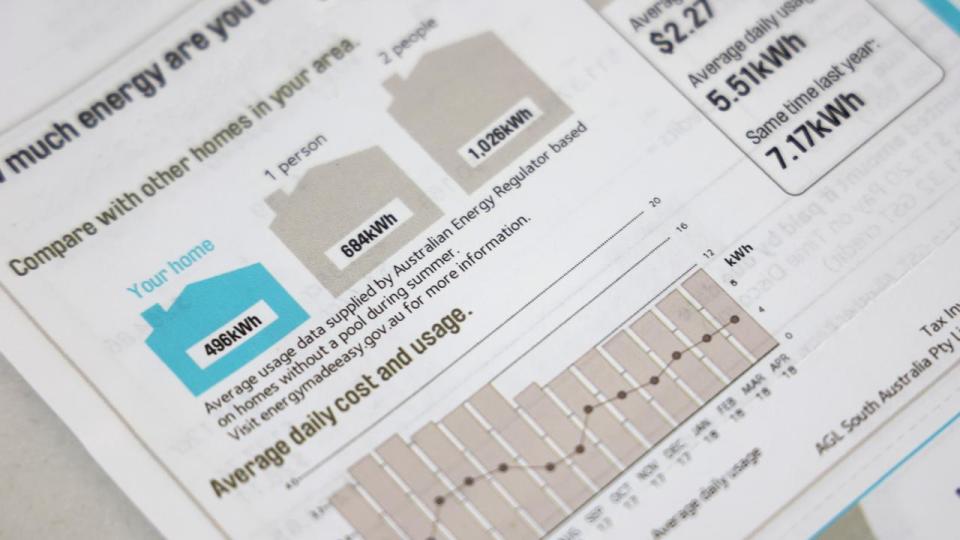Bill shock sparks annual rebates for homes, businesses
Households will receive hip-pocket relief with $300 knocked off their quarterly energy bills, as the federal government seeks to ease price increases fuelled by Russia's invasion of Ukraine.
The package is part of cost-of-living measures in Tuesday's federal budget, with the government planning to spend $3.5 billion in the 2024/25 financial year.
Eligible small businesses will also get slightly more relief, with $325 to be taken off their bills over a year.
The cost-of-living measures received predictable accolades from trade unions but caution from economists and others.
The government's spending plan is "a good budget for working people", the Australian Council of Trade Unions said, singling out commitments on pay increases and cost-of-living support.
The $300 rebates will apply to more than 10 million households over 2024/25.
"Electricity rebates may alleviate headline inflation but will drive spending elsewhere. This risks working against monetary policy," Committee for Economic Development chief economist Cassandra Winzar said.
Energy companies will apply $75 credits to each quarterly power bill under the rebate scheme.
Treasurer Jim Chalmers said the energy rebates would put downward pressure on inflation.

"In 2022, Russia's invasion of Ukraine triggered the biggest shock to global energy prices since the 1970s," he said his budget speech to parliament.
"We know Australian families and businesses and felt this pain and that's why we've stepped in to help.
"Electricity prices would have risen 15 per cent in the last year if not for our efforts, instead they rose two per cent."
The rebates should have been more targeted than giving it to all Australians, including the well-off, independent Senator David Pocock said.
"Failing to means-test the $300 energy relief payment wastes precious government revenue that could be spent supporting those who can't afford to buy food," he said.
Government modelling predicts the energy bill relief measure will see household power bills 17 per cent lower than standing offers put forward by power providers.
The rollout of the energy rebate scheme in the budget is an expansion of previous government measures, which provided similar relief to concession holders.
Treasury forecasts have estimated the energy rebates, along with rent assistance payments, would reduce headline inflation by half a percentage point in 2024/25.

 Yahoo Finance
Yahoo Finance 